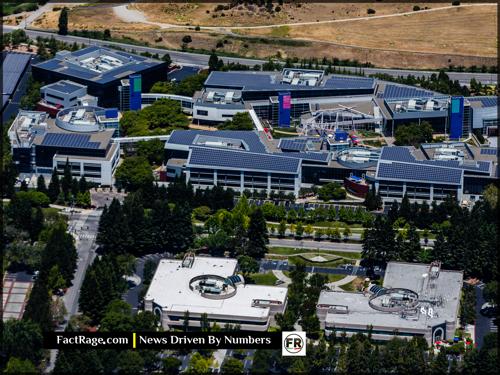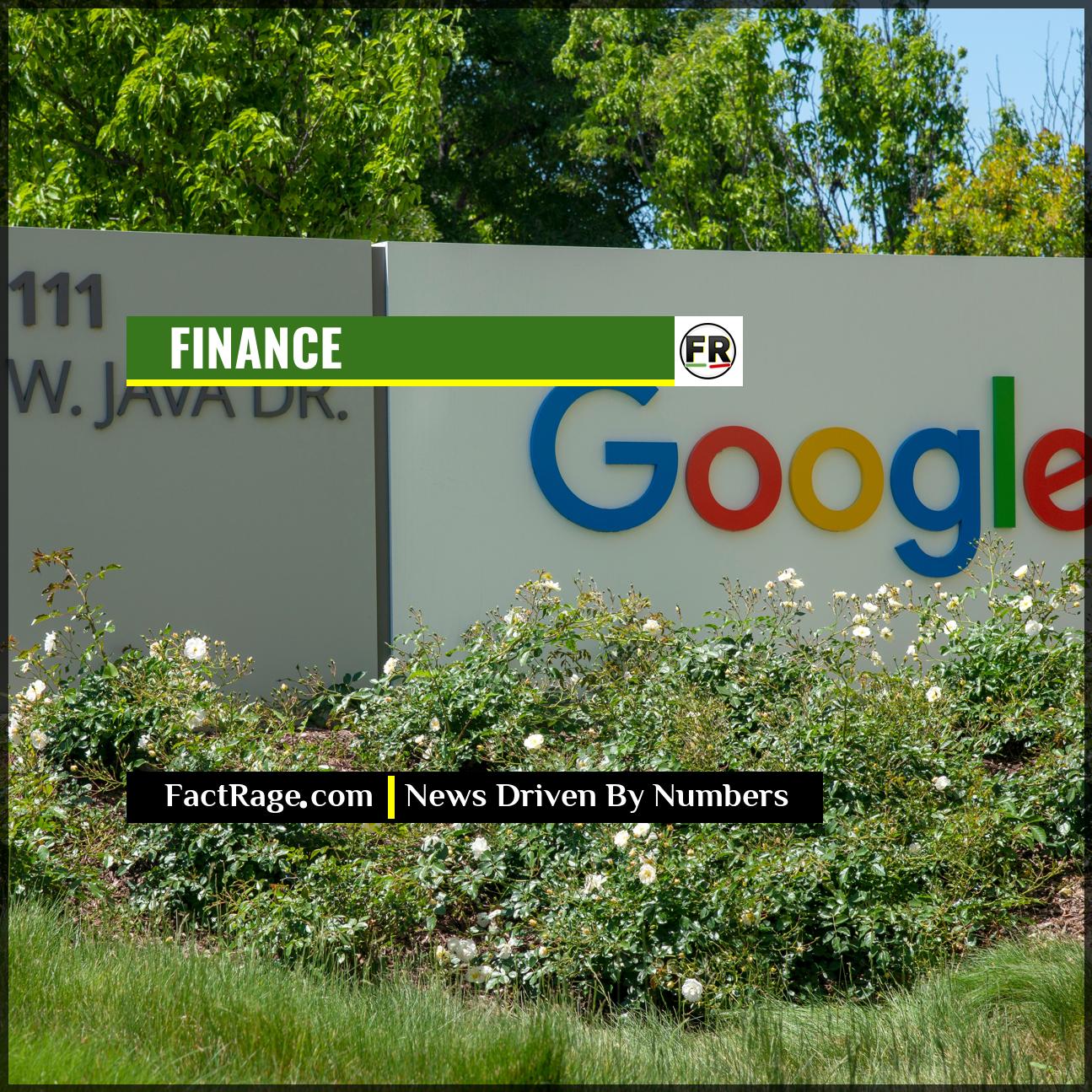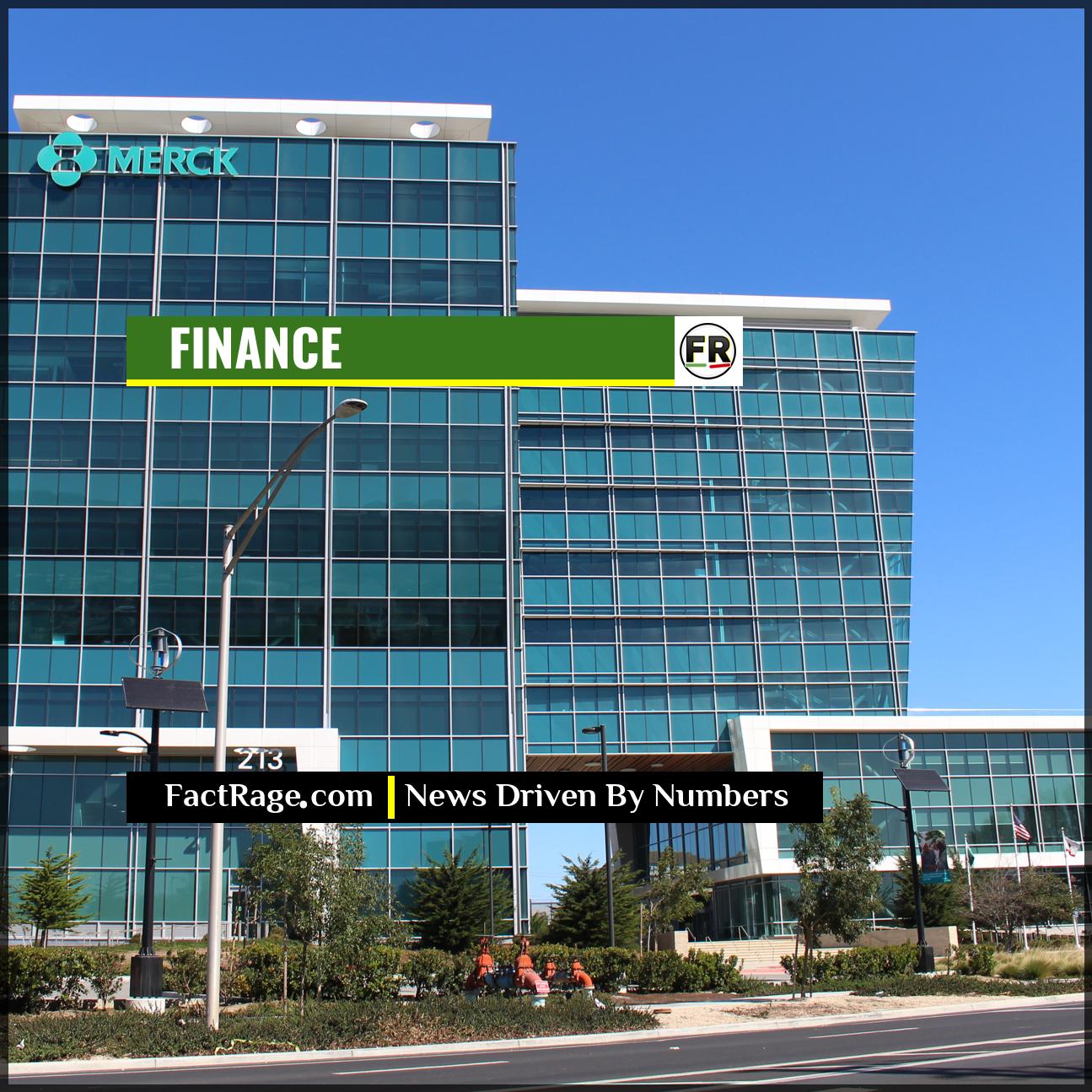MOUNTAIN VIEW, CA – A combination of intense competitive pressure, soaring operational costs, and persistent regulatory scrutiny is forcing a critical re-evaluation of the financial future for tech giant Alphabet (GOOGL).
- Core Business Pressure – Alphabet’s primary revenue source, digital advertising, faces new disruption from AI-driven search models that could fundamentally alter consumer behavior and ad performance.
- The AI ‘Arms Race’ – Capital expenditures have surged as the company invests billions in data centers and proprietary chips to compete in generative AI, impacting profit margins with an unclear immediate return on investment.
- Significant Regulatory Risk – Ongoing antitrust lawsuits from the U.S. Department of Justice and regulations like the EU’s Digital Markets Act create significant financial and operational uncertainty for the company.
The technology giant that once seemed unassailable now navigates a complex landscape where its long-term dominance, and the financial engine that powers it, is no longer guaranteed. An analysis of the numbers reveals a company fighting a war on three distinct fronts.
A Titan’s Balance Sheet Under Pressure
![]() In the narrative of the AI revolution, Alphabet is often cast as an incumbent giant, but a dispassionate look at the financial statements reveals a more complex reality. The staggering cost of the AI arms race, combined with new threats to its foundational advertising business and mounting regulatory pressure, creates a triad of financial headwinds. The story of Google’s next chapter will not be written in press releases, but in the cold, hard data of its quarterly reports.
In the narrative of the AI revolution, Alphabet is often cast as an incumbent giant, but a dispassionate look at the financial statements reveals a more complex reality. The staggering cost of the AI arms race, combined with new threats to its foundational advertising business and mounting regulatory pressure, creates a triad of financial headwinds. The story of Google’s next chapter will not be written in press releases, but in the cold, hard data of its quarterly reports.
Read On…
Below, we break down the three primary financial pressures challenging Alphabet’s market dominance: the disruption to its core ad model, the immense cost of AI competition, and the growing financial risk of antitrust action.
Is Google’s Cash Cow Under Threat?

For years, Google’s search advertising business has been one of the most profitable enterprises in history. However, the generative AI wave presents a potential paradigm shift. Alphabet’s core challenge is that improving its search product with AI could undermine the very business model that funds it. The question analysts are asking is a crucial one: what happens to a business built on clicks when AI provides direct answers?
This internal conflict is compounded by external competitive pressure. The partnership between Microsoft (MSFT) and OpenAI has aggressively integrated AI into the Bing search engine, presenting the most credible threat to Google’s search dominance in over a decade. Simultaneously, advertising dollars continue to flow toward platforms like Amazon for product searches and TikTok for social commerce, chipping away at Google’s market share in the digital ad space. While revenue remains colossal, these headwinds signal a potential flattening of the growth curve that has long propelled the company’s stock.
What Is the True Price of Competing in AI?
The race for AI supremacy is astronomically expensive, a fact reflected directly in Alphabet’s financial statements. The company’s capital expenditures (CapEx) have ballooned, with tens of billions of dollars allocated annually to building and equipping data centers with powerful processors, including its own custom Tensor Processing Units (TPUs).
This spending is largely defensive—a necessary cost to keep pace with rivals and maintain its technological edge. Unlike a company like Nvidia, which sees a direct sale for every AI chip it produces, much of Alphabet’s investment is in infrastructure. The return on this investment is less direct and harder to quantify. While its Cloud division is a key growth area, it remains in a distant third place in market share. The success of its AI integrations into products like Workspace and Search is critical to justifying this massive cash outlay, but the path to clear, incremental profit from these features is still being forged.
How Much Risk Does Regulation Represent?
Perhaps the most unpredictable variable facing Alphabet is the mounting legal and regulatory pressure from governments worldwide. In the United States, the Department of Justice is pursuing two landmark antitrust cases: one targeting its search monopoly and another aimed at its dominant ad-tech business. In Europe, the Digital Markets Act (DMA) is already forcing changes in how Google bundles its services and shares data.
For investors, this regulatory environment creates a cloud of profound uncertainty. The potential outcomes range from billions of dollars in fines to, in a more extreme scenario, court-ordered breakups of its business units. Such an outcome could fundamentally alter the symbiotic relationship between its services and unravel the corporate structure. While legal battles will take years to resolve, the specter of these threats impacts strategic planning and weighs on investor sentiment, representing a tangible financial risk that is difficult to price into the company’s stock value.
A Crossroads on the Balance Sheet
![]() For investors, Alphabet is no longer a simple story of unimpeded growth but a complex equation of defensive spending, competitive threats, and significant regulatory risk. The company’s future valuation hinges on its ability to navigate this tripartite challenge by successfully monetizing its massive AI investments while protecting its core advertising business. The ultimate verdict on this high-stakes strategy will not be found in promises or presentations, but in the hard numbers reported on future financial statements.
For investors, Alphabet is no longer a simple story of unimpeded growth but a complex equation of defensive spending, competitive threats, and significant regulatory risk. The company’s future valuation hinges on its ability to navigate this tripartite challenge by successfully monetizing its massive AI investments while protecting its core advertising business. The ultimate verdict on this high-stakes strategy will not be found in promises or presentations, but in the hard numbers reported on future financial statements.














